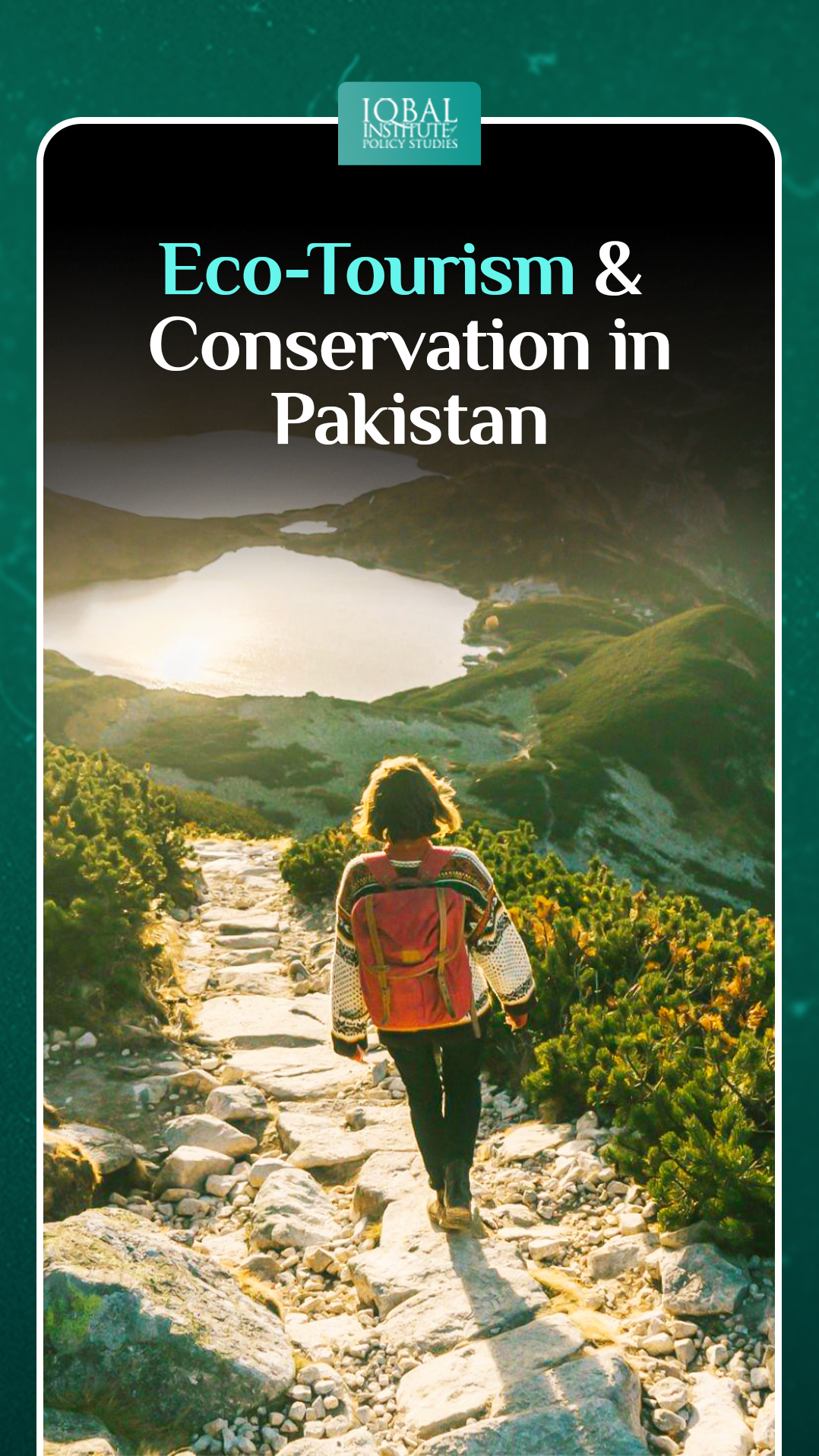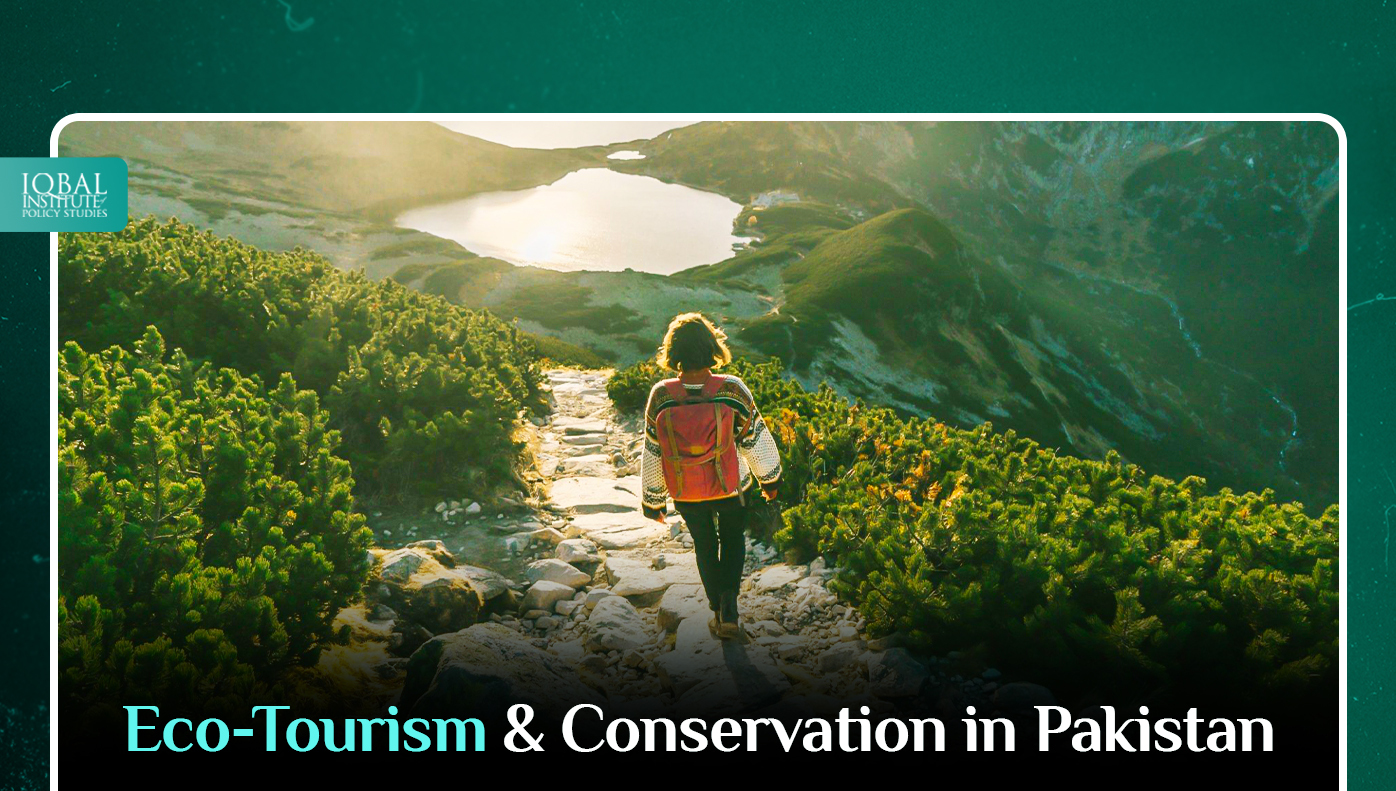Pakistan is a country blessed with breathtaking natural beauty and rich biodiversity. From majestic mountain ranges and pristine valleys in the north to serene coastlines and lush forests in the south, Pakistan offers a diverse range of landscapes and ecosystems. Nestled in the heart of the Himalayas, Karakoram, and Hindu Kush Mountain ranges, Pakistan boasts some of the world’s highest peaks, including K2, the second-tallest mountain on Earth.
Eco-Tourism and its Principles
Eco-tourism can be defined as responsible travel to natural areas that conserves the environment, sustains the well-being of local communities, and promotes education and appreciation of the natural and cultural heritage. In the context of Pakistan, eco-tourism emphasizes sustainable practices, ecological preservation, and community engagement. It seeks to minimize negative impacts on the environment while maximizing positive social and economic outcomes.
The principles of eco-tourism in Pakistan revolve around promoting environmental conservation, supporting local communities, and providing meaningful experiences for travelers. This includes minimizing ecological footprint, respecting local cultures and traditions, involving local communities in decision-making processes, and generating economic benefits that directly contribute to conservation efforts and community development.
Highlighting Pakistan’s Commitment to Responsible Travel, Conservation, and Community Involvement
Pakistan has shown a strong commitment to responsible travel, conservation, and community involvement in the realm of eco-tourism. The government and various organizations have implemented policies and initiatives to promote sustainable tourism practices and protect the country’s natural heritage. Protected areas, national parks, and wildlife sanctuaries have been established to preserve fragile ecosystems and safeguard endangered species. Furthermore, Pakistan encourages community involvement and empowerment by engaging local populations in eco-tourism ventures. This ensures that local communities benefit from tourism activities and are actively involved in conservation efforts. Community-based tourism initiatives provide economic opportunities, improve livelihoods, and create a sense of ownership and pride in protecting natural resources.
Benefits of Eco-Tourism for Both Travelers and Local Communities in Pakistan
Eco-tourism in Pakistan offers a range of benefits for both travellers and local communities. For travellers, it provides an opportunity to immerse themselves in the pristine beauty of Pakistan’s natural landscapes, engage in sustainable activities, and gain a deeper understanding of local cultures and traditions. Eco-tourism experiences often include hiking through scenic trails, wildlife spotting, exploring ancient archaeological sites, and participating in community-based initiatives.
Local communities reap the benefits of eco-tourism through increased economic opportunities, job creation, and cultural preservation. Revenue generated from eco-tourism activities contributes directly to community development projects, education, healthcare, and infrastructure improvements. By involving local communities in decision-making processes and promoting sustainable practices, eco-tourism in Pakistan strengthens the bond between travellers and the local population, fostering cultural exchange and mutual understanding.
Eco-Tourism Destinations in Pakistan
Pakistan is a treasure trove of natural wonders, offering a diverse range of eco-tourism destinations. In the Northern Areas, visitors can marvel at towering peaks like Nanga Parbat and explore enchanting valleys such as Hunza and Skardu. The coastal areas along the Arabian Sea provide opportunities for beachside eco-adventures, with beautiful stretches of sand, mangrove forests, and vibrant marine life. National parks like Khunjerab and Hingol showcase the country’s rich biodiversity and are havens for rare and endangered species.
Activities and Experiences That Allow Travelers to Connect with Nature
Eco-tourism in Pakistan offers a lot of activities that allow travellers to deeply connect with nature. Hiking enthusiasts can embark on thrilling treks along ancient trails, such as the Karakoram Highway or the Fairy Meadows in the shadow of Nanga Parbat. Wildlife enthusiasts can indulge in spotting magnificent species like the rare snow leopard or the playful dolphins in the Indus River. Exploring ecological hotspots like the Deosai Plains or the Chitral Gol National Park unveils breathtaking landscapes and unique flora and fauna.
Educational and Transformative Aspects
Eco-tourism in Pakistan goes beyond providing scenic beauty and adventure; it offers educational and transformative experiences. Travellers can engage in environmental learning programs to understand the significance of conservation efforts and sustainable practices. They can participate in cultural exchange activities, interact with local communities, learn about their traditions, and support their livelihoods. Through such experiences, travellers gain a deeper appreciation for the natural and cultural heritage of Pakistan, fostering a sense of responsibility toward its preservation.
Eco-tourism in Pakistan is an immersive and transformative journey that allows travellers to witness the wonders of nature firsthand. It offers a chance to explore diverse ecosystems, engage in outdoor activities, and connect with local communities. Through these experiences, visitors not only develop a greater understanding of environmental issues and cultural diversity but also contribute directly to the conservation and well-being of the places they visit. With its majestic mountains, pristine coastlines, and thriving wildlife.
Conservation Efforts
Eco-tourism in Pakistan plays a vital role in raising awareness about pressing environmental issues and conservation challenges specific to the region. By immersing travellers in the natural beauty of Pakistan, eco-tourism fosters a deep appreciation for the environment and promotes a sense of responsibility toward its preservation. Through educational programs, guided tours, and interactive experiences, eco-tourism creates opportunities for visitors to learn about the unique ecosystems, fragile biodiversity, and environmental threats faced by Pakistan. This increased awareness not only benefits travellers but also instils a sense of urgency to protect and conserve these precious natural resources.
Eco-tourism in Pakistan actively supports various conservation initiatives aimed at protecting wildlife, promoting sustainable development, and engaging local communities. Conservation efforts include the establishment and maintenance of protected areas, such as national parks and wildlife sanctuaries, which serve as vital habitats for endangered species. Eco-tourism revenue contributes to funding wildlife protection programs, anti-poaching measures, and habitat restoration projects.
Eco-tourism encourages sustainable development projects that prioritize the well-being of local communities while minimizing negative environmental impacts. This includes supporting eco-friendly infrastructure, employing local guides and staff, and investing in community-based conservation initiatives.
Benefits
Eco-tourism and conservation efforts in Pakistan bring forth numerous benefits. Firstly, they promote sustainable practices that minimize the environmental impact of tourism activities, preserving the natural beauty and biodiversity of the country. Secondly, eco-tourism generates economic opportunities for local communities, providing employment and income through tourism-related businesses. It also supports the development of infrastructure, healthcare, and education in these areas. Additionally, eco-tourism fosters environmental awareness and education, encouraging visitors to appreciate and protect Pakistan’s unique ecosystems. Moreover, it contributes to the preservation of cultural heritage by promoting the value of traditional practices, arts, and customs.
Challenges of Eco-Tourism and Conservation in Pakistan
Despite the many benefits, eco-tourism, and conservation in Pakistan face several challenges. One significant challenge is finding a balance between tourism development and environmental protection. Managing visitor impact, particularly in ecologically sensitive areas, is crucial to prevent habitat degradation and wildlife disturbance. Additionally, ensuring the equitable distribution of economic benefits among local communities is essential to avoid socio-economic disparities. Illegal activities such as wildlife trafficking and habitat destruction pose persistent threats to conservation efforts. Climate change also poses challenges, with potential impacts on ecosystems, wildlife, and natural resources. Addressing these challenges requires the collaboration of government authorities, local communities, and tourists themselves to implement sustainable practices, enforce regulations, and raise awareness about the importance of conservation in Pakistan.
Sustainable Practices in Eco-Tourism in Pakistan
Sustainable practices are vital for preserving the country’s natural and cultural treasures. By applying sustainable tourism principles, such as minimising environmental impact, supporting local communities, and preserving cultural heritage, eco-tourism in Pakistan strives to create a positive and lasting impact. This includes promoting eco-friendly accommodations, encouraging responsible transportation options, and advocating for ethical wildlife tourism practices. Travellers are encouraged to be conscious consumers, respecting the environment and local communities, while engaging in eco-tourism activities in Pakistan. Through these sustainable practices, eco-tourism in Pakistan fosters a harmonious relationship between nature, culture, and responsible travel, ensuring the long-term sustainability and preservation of its remarkable destinations.
Conclusion
Eco-tourism and conservation in Pakistan offer a remarkable opportunity to explore the country’s natural wonders while promoting sustainability and preservation. By embracing eco-friendly practices, supporting local communities, and raising awareness about environmental issues, eco-tourism contributes to the protection of Pakistan’s rich biodiversity and cultural heritage. While challenges exist, the benefits of eco-tourism, including sustainable development, economic opportunities for local communities, and environmental education, outweigh the difficulties. Through responsible and conscious travel, individuals can play an active role in preserving Pakistan’s natural treasures for future generations, ensuring that these wonders continue to inspire and thrive in harmony with the environment.
This article is written by Shahmeer Adnan. Shahmeer is a research analyst at the Iqbal Institute of Policy Studies (IIPS).



Leave a Reply